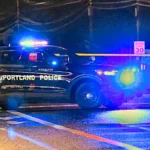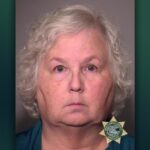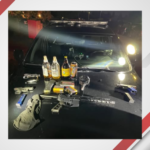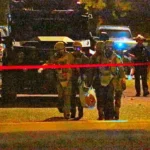PORTLAND, Ore. (KOIN) — Portland Police Chief Bob Day is once again in the spotlight as the Portland Police Bureau (PPB) faces renewed national attention and local criticism amid ongoing protests and political tensions.
The latest wave of scrutiny comes as the Trump administration continues its legal push to deploy National Guard troops to Portland, specifically to protect the city’s Immigration and Customs Enforcement (ICE) facility. The move has sparked debate over federal involvement in local law enforcement and reignited longstanding discussions about the city’s approach to protests, policing, and public safety.
While demonstrations outside the ICE facility have been largely peaceful, police say they have occasionally escalated. According to PPB officials, more than 60 arrests have been made since the protests began. Many of those arrested were reportedly linked to unlawful camping or blocking access to federal property. Recently, PPB also cleared an encampment that had formed near the facility, where protesters had been camping for weeks.
Also Read
Despite the generally calm nature of most gatherings — often involving a dozen or so demonstrators — Portland police continue to draw scrutiny for how they balance public safety and the right to protest.
Chief Bob Day, a longtime veteran of the bureau who came out of retirement in 2023 to take on the city’s top law enforcement role, addressed these issues during an appearance on KOIN’s “Eye on Northwest Politics.”
In the interview, Day discussed the ongoing tensions with the Trump Administration, the city’s collaboration with federal agencies, and how the police department is navigating new challenges under heightened public and political pressure.
“The Portland Police Bureau operates under city leadership,” Day said. “We’re focused on keeping the peace, ensuring safety for everyone involved — protestors, residents, and officers alike. Our role is to protect rights while maintaining order.”
Day also addressed the recent visit from Department of Homeland Security Secretary Kristi Noem, whose stop in Portland drew widespread media coverage and renewed conversation about the city’s protest history. Noem’s presence was seen by some as a federal show of force, while others viewed it as an effort to strengthen coordination on national security and immigration enforcement.
Beyond protests, Chief Day spoke about another pressing issue — Portland’s homelessness crisis and the citywide camping ban. The ban, which limits when and where people experiencing homelessness can camp, has faced criticism from advocates who say it criminalizes poverty.
Day acknowledged the challenge, emphasizing that police are working with service providers and city agencies to ensure a balanced approach. “This is not just a policing issue,” he said. “We’re part of a broader system trying to connect people to housing and support, but we also have to enforce city ordinances when safety and livability are at stake.”
As for the growing public scrutiny of the Portland Police Bureau, Day said he welcomes accountability but hopes the community will also recognize the difficult circumstances officers face daily. “We understand the public’s expectations — and we hold ourselves to high standards,” he said. “We want to build trust through transparency, professionalism, and a shared commitment to safety.”
Chief Day’s comments reflect the complex moment facing Portland’s law enforcement — a department navigating between public skepticism, federal pressure, and ongoing local challenges.
While much of the attention has focused on politics and policy, Day said his ultimate goal remains simple: to keep Portland safe while respecting the rights and values of its residents.












